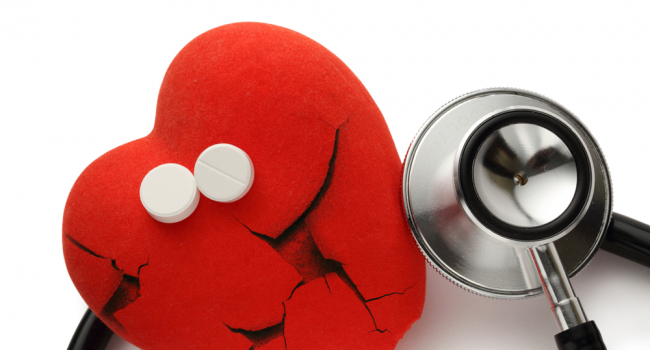- Latest news▼
-
18:00, April 18 Daily Mail: Elderly woman in China gets infected with brain-eating amoeba

-
14:19, April 18 Obesity: exercising before breakfast helps you lose weight faster

-
10:42, April 18 The Conversation: childhood trauma can cause pathological hoarding

-
08:37, April 18 Daily Mail: Satiating food reduces cravings for sweets, nutritionist says

-
18:22, April 17 First Armenian-German Conference entitled “Heart Failure Spring School”

-
08:38, April 17 Why do kids usually recover from COVID-19 more easily than adults?

-
14:37, April 16 Daily Mail: intermittent fasting is not suitable for children and women before their periods

-
16:41, April 15 Cell: in carriers of defective BRCA2 gene, sugar consumption increases cancer risk

-
15:04, April 15 305 cases of measles recorded in Armenia so far in 2024

-
14:38, April 15 Food and Environmental Virology: tea contributes to effective coronavirus control

-
12:41, April 15 Daily Mail: vitamin A, B3 and E supplements can be dangerous

-
10:56, April 15 Diabetes Care: evening physical activity is good for the heart

-
08:27, April 15 Women are more susceptible to blood loss and death during bypass surgery than men, researchers say

-
18:42, April 13 WHO: Nigeria pioneers revolutionary meningitis vaccine

-
16:43, April 13 One-third of women experience menstruation-related migraines, most often during premenopause - study

All materials
Which patients can take aspirin to prevent heart disease?

Taking aspirin to prevent cardiovascular disease can lead to a number of side effects. For some patients, the benefit exceeds any risks, but before prescribing aspirin, it is necessary to conduct a personalized analysis of the ratio of benefit to harm, New Zealand scientists say.
For decades, healthy patients have been advised to take low doses of aspirin for the prevention of heart disease, but this year the American College of Cardiology and the American Heart Association made changes to the guidelines. Daily prophylactic aspirin is still recommended after a heart attack, stroke, or open heart surgery. But, since the blood-thinning effect of aspirin can provoke serious bleeding, many healthy patients have been advised not to risk.
In a new study by New Zealand scientists from the University of Auckland, published in Annals of Internal Medicine, another conclusion was made: the benefits of taking aspirin may outweigh the risks for many patients without diagnosed cardiovascular disease, but a personalized benefit-harm analysis is needed.
Researchers analyzed data from 245,028 people (of which 43.6% were women) aged 30 to 79 years, without a history of heart or vascular disease. The goal was to identify people to whom aspirin is likely to bring "net benefits."
The ‘net benefit’ from taking aspirin was calculated for each participant by subtracting the number of cases of cardiovascular diseases that are likely to be prevented from the number of extensive bleeding that can be caused within 5 years.
According to the results, 12.1% of men and 2.5% of women with no history of heart problems received a net benefit. If one case of CVD is considered equivalent to two extensive bleeding, 21% of women and 41% of men will benefit.
Researchers concluded that the benefits of aspirin outweigh the harm from bleeding if the risk of death from bleeding alone is considered equivalent to the risk of hospitalization or death from myocardial infarction.
Follow NEWS.am Medicine on Facebook and Twitter
- Video
- Event calendar
- Archive
- Most read
month
week
day
- Pediatrics: Hypoglossal nerve stimulation implant helps with sleep apnea 1356
- Health minister: Simulation educational center will be created, assisted reproductive technology capacity will increase in Armenia 1311
- WHO: Nigeria pioneers revolutionary meningitis vaccine 1164
- One-third of women experience menstruation-related migraines, most often during premenopause - study 1132
- Women are more susceptible to blood loss and death during bypass surgery than men, researchers say 912
- Food and Environmental Virology: tea contributes to effective coronavirus control 890
- Daily Mail: vitamin A, B3 and E supplements can be dangerous 890
- Cell: in carriers of defective BRCA2 gene, sugar consumption increases cancer risk 859
- 305 cases of measles recorded in Armenia so far in 2024 853
- Diabetes Care: evening physical activity is good for the heart 844
- Daily Mail: intermittent fasting is not suitable for children and women before their periods 668
- First Armenian-German Conference entitled “Heart Failure Spring School” 459
- Why do kids usually recover from COVID-19 more easily than adults? 322
- Obesity: exercising before breakfast helps you lose weight faster 307
- The Conversation: childhood trauma can cause pathological hoarding 301
- Find us on Facebook
- Poll





